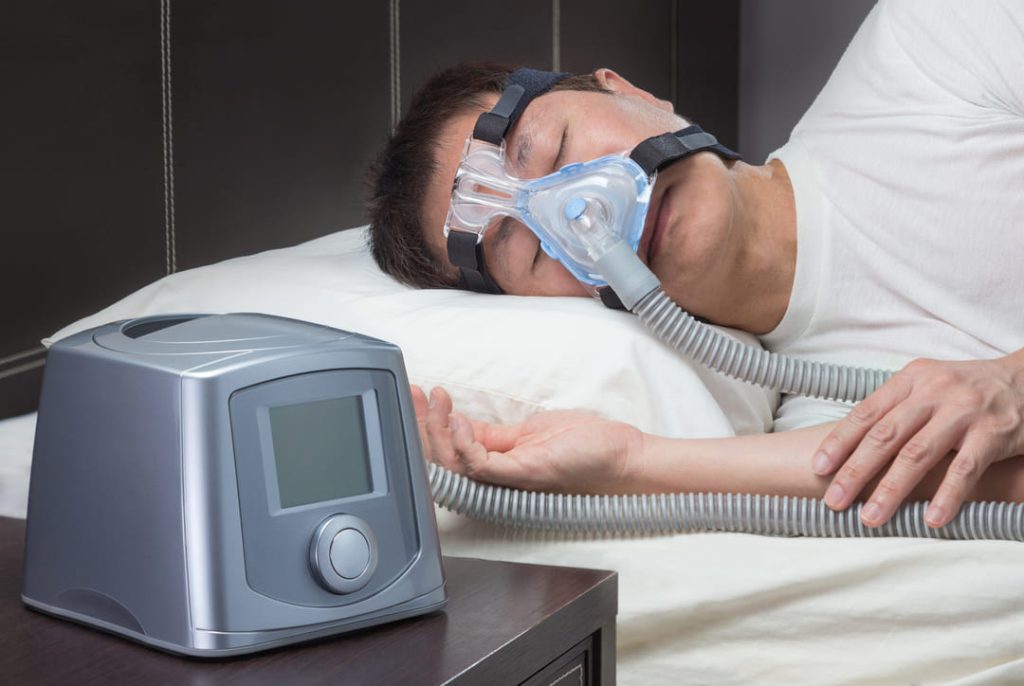How to Get a Sleep Apnea Nexus Letter
By Telemedica
11/14/2023
In this post, we outline what you need to know about a Sleep Apnea Nexus Letter. We also explain how a nexus letter can be helpful and how veterans can get a nexus letter for sleep apnea.
If you’re a veteran, getting treatment for service-connected obstructive sleep apnea (OSA) starts by getting a VA rating for sleep apnea. One way to bolster your chances of winning your VA disability claim is with a high-quality sleep apnea nexus letter.

Key Takeaways
- A Sleep Apnea Nexus Letter is a statement from a medical professional that can help a veteran establish service connection.
- The VA doesn’t require a nexus letter for OSA, but it can help strengthen your VA disability claim.
- The VA rates sleep apnea at 0%, 30%, 50%, or 100%.
What is a Sleep Apnea Nexus Letter?
A sleep apnea nexus letter is a written statement from a qualified medical professional stating that, in their professional opinion, your sleep apnea is caused by an in-service event, injury, or illness.
For the VA to validate your claim, they need to determine if your condition was caused or made worse by your military service. This is known as “service connection.”
Proof of service connection is required for all VA claims and can be established by medical opinion or medical evidence. Nexus letters serve as a medical opinion.
A nexus letter can provide a statement connecting any disability to your military service, not just sleep apnea.
How To Get A Nexus Letter For Sleep Apnea
The VA only accepts nexus letters written by licensed providers.
It’s your responsibility to find a physician and request a nexus letter. The VA doesn’t identify qualified physicians or set up appointments specifically for nexus letters on your behalf like they do for C&P exams.
The VA accepts nexus letters from both VA or VA-contracted physicians and private physicians as long as they are qualified to evaluate your condition.
But the question still remains, “How do I find a doctor who writes nexus letters?”
The best way is through a service with a network of providers qualified to write a nexus letter for your specific disability. Telemedica is one such service that is qualified and able to assist.
Do I Need a Sleep Apnea Nexus Letter?
The VA does not require you to get a nexus letter. Service connection can be established in other ways, such as with the medical evidence in your files. If your sleep apnea was diagnosed while in service and is in your military medical records—you many not need a nexus letter.
However, having a statement from a medical professional saying that your condition was caused or aggravated by your military service can really bolster your claim. The VA values the opinions of medical professionals, especially if they’re specialists in the field related to your condition.
Here’s a simple litmus test to help determine if you should pursue a nexus letter:
- If your disability was not diagnosed while in service or if it is not in your military medical records, then a nexus letter could benefit your VA claim.
- Are you re-filing for a previously denied claim or filing for a secondary condition? Nexus letters can strengthen these types of claims.
Elements of a Strong Nexus Letter
What your nexus letter looks like will vary depending on the source. However, all good nexus letters have these four things:
- Supporting Evidence: Your provider should mention the medical and/or personnel records they’ve reviewed that are related to your claim.
- Evidence-based Rationale: Your provider should explain how your in-service event, injury, or disease caused your disability. They can refer to medical studies, case laws, or research journals to help show that their opinion is evidence-based.
- A Nexus Opinion: Your provider should provide a medical opinion as to how likely it is that your disability was caused or made worse by an in-service event, injury, or disease. The strength of their opinion will depend on the evidence. Make sure they use language like:
- “Is due to” = 100% certain
- “More likely than not” = greater than 50% certain
- “At least as likely as not” = equal to 50% certain
- “Not likely due to” = less than 50% certain
- “Is not due to” = 0% chance
Doctor’s Credentials: Make sure your provider signs and dates the letter and lists their title, specialty, and any other credential that proves they’re an expert.

How the VA Rates Sleep Apnea
Sleep apnea is rated by the VA at 0%, 30%, 50%, or 100%.

Figure 2. VA Sleep Apnea Rating Chart
These rating percentages come from the Veteran Affairs Schedule for Rating Disabilities (VASRD).
The VASRD is a list of diagnostic codes for every condition the VA rates. Listed with the codes are the symptoms of each condition and their respective rating percentage.
The percentage the VA awards a disability depends on how negatively the symptoms affect your life. The more debilitating your sleep apnea symptoms, the higher your rating.
Medical Evidence Wins VA Claims
Our mission at Telemedica is to provide innovative, quality care to the veteran community. Our standard of care applies to everything we do, including nexus letters. If you need a nexus letter for sleep apnea, don’t hesitate to reach out.
Book your free 20-minute Consultation Call now and a qualified provider will review your medical records and provide a comprehensive chart review summarizing your medical records and documents that may support your claim.